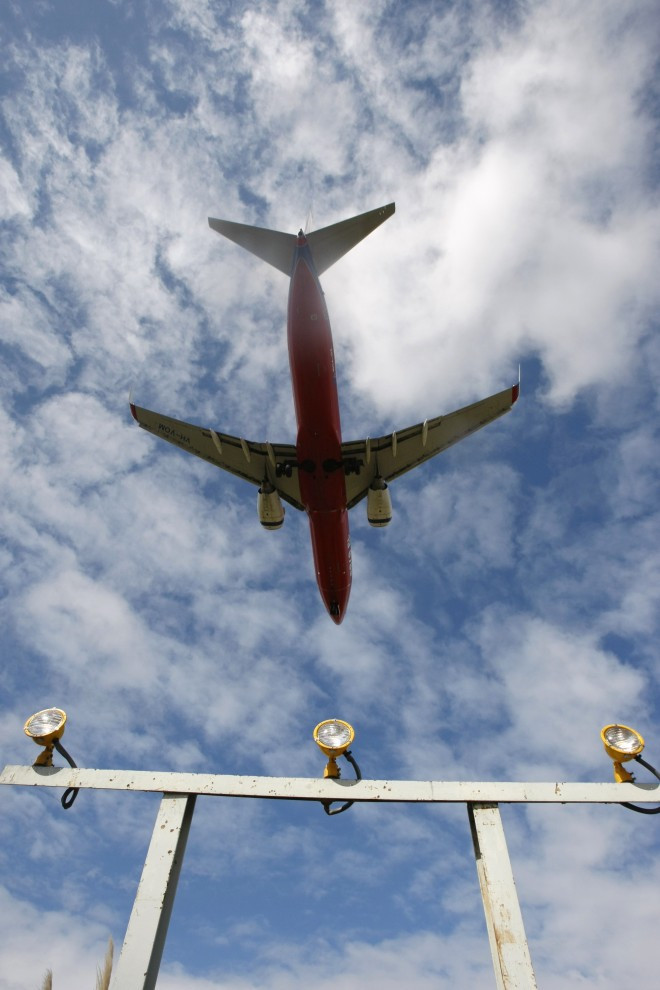Would-be terrorist had his luggage bomb returned home by airline because it was too heavy
Lebanese and Australian authorities say they foiled planned attack on Abu Dhabi-bound plane.
Bombs intended for use in a planned airplane attack were returned to the alleged terrorist's home in Australia because the baggage containing the explosive devices were too heavy to board, according to reports.
Lebanon's Interior Minister Nohad Machnouk said on Monday (21 August) his country had helped Australia foil a planned airplane attack, which involved the use of explosive devices hidden in Barbie dolls and a meat grinder.
He said Lebanese authorities had been monitoring four Lebanese brothers who had planned to bring down an Etihad Airlines flight from Sydney to Abu Dhabi, capital of the United Arab Emirates (UAE), on 15 July.
He added that three of the brothers lived in Sydney and the fourth, Tarek Khayyat, is an alleged senior member of the Isis terror group in Syria.
Machnouk said that one of the brothers was supposed to detonate explosive devices some 20 minutes after the plane had departed.
However, he was forced to abort the plan as the bag containing the bombs weighted seven kilograms above the airline's limit for hand luggage.
It is believed that the the bag with the explosive devices was sent back to the alleged attacker's home in Australia, AP said.
It is not clear yet why the baggage was not sent to the hold of the aircraft and how the planned attack was foiled.
Machnouk said the alleged plot had been "foiled because of the extra weight".
He added that the operation would have "probably" been succesfull if the luggage had not exceeded the weight limit.
The minister said Lebanese police had been monitoring Tarek's brothers since he moved to Raqqa and became an Isis commander.
Earlier in July, Australian authorities said they had arrested four men in connection to a credible plot to bring down a plane.
At the time, Australian Federal Police (AFP) Deputy Commissioner Michael Phelan said some components for the bombs had been sent through international cargo from Isis members to the men in Australia.
At least one of those arrested was released, but brothers Khaled Khayat and Mahmoud Khayat remained in custody and were charged with "preparing for, or planning, a terrorist attack".
There seem to be be discrepancies between the versions given by Lebanese and Australian authorities and some details on the foiled attack are not clear.
Australia said a man had tried to check in luggage without knowing it contained a bomb.
Machnouk said Lebanese internal intelligence found that one of the brothers, Amer Khayat, "was involved in the operation and it appears that he was supposed to carry it out".
Some reports said Amer was the person who brought the luggage containing the bombs at the airport in Australia and was later forced to board the plane without the explosive devices.
However, Machnouk said Amer – who had often travelled between Australia and Lebanon under pretexts such as coming to get engaged or get married – was arrested in Lebanon on 15 July.

Australian police said on Tuesday (22 August) it was not appropriate to comment further on the details of a current investigation.
"We have a close and cooperative relationship with the Lebanese authorities and are working closely on this investigation," an Australian Federal Police spokeswoman said in an email to Reuters.
He said information from Lebanese intelligence had "assisted in foiling a large operation aiming to blow up a plane".
It is believed the plane carried some 400 passengers, of which 120 were Lebanese.
Machnouk believes the planned attack would have been in response to the UAE and Australia's participation in a US-led coalition fighting Isis in the Middle East.
"When four Lebanese brothers in Australia decide to blow up an Emirati jet this means that the whole world should work together to fight terrorism," Machnouk said. "Coordination should be 24 hours a day between all security agencies to stop such attacks."
The United Arab Emirates' national airline said it is working with Australian authorities in the ongoing investigation.
© Copyright IBTimes 2025. All rights reserved.






















